August 28th, 2025SEMILLA Seminary (Guatemala) reps to visit Canada
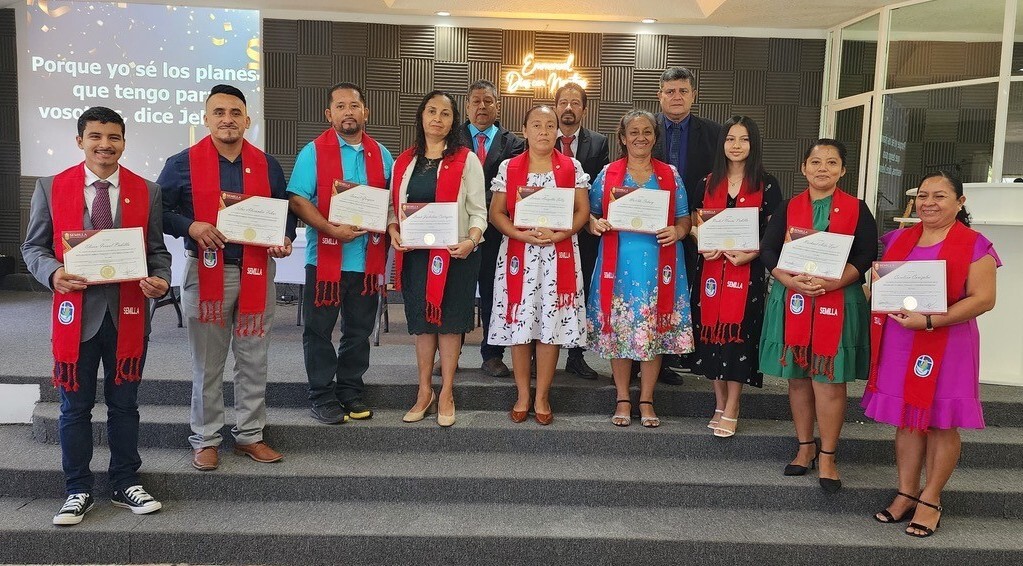 SEMILLA Graduating Class 2025
SEMILLA Graduating Class 2025
Guatemalans Coming to Canada with an Open Invitation
Article summary:
- Representatives of SEMILLA in Guatemala will make a rare visit to Canada in Sept. to extend an invitation to Canadians.
- Seeds of Anabaptist theology planted decades ago are now flourishing and attracting young people in large numbers.
- Latin Americans offer Canadians much inspiration about faith and life.
Winnipeg — Mennonite churches and schools will get a rare opportunity to meet representatives of a long-standing International Witness partner in September.
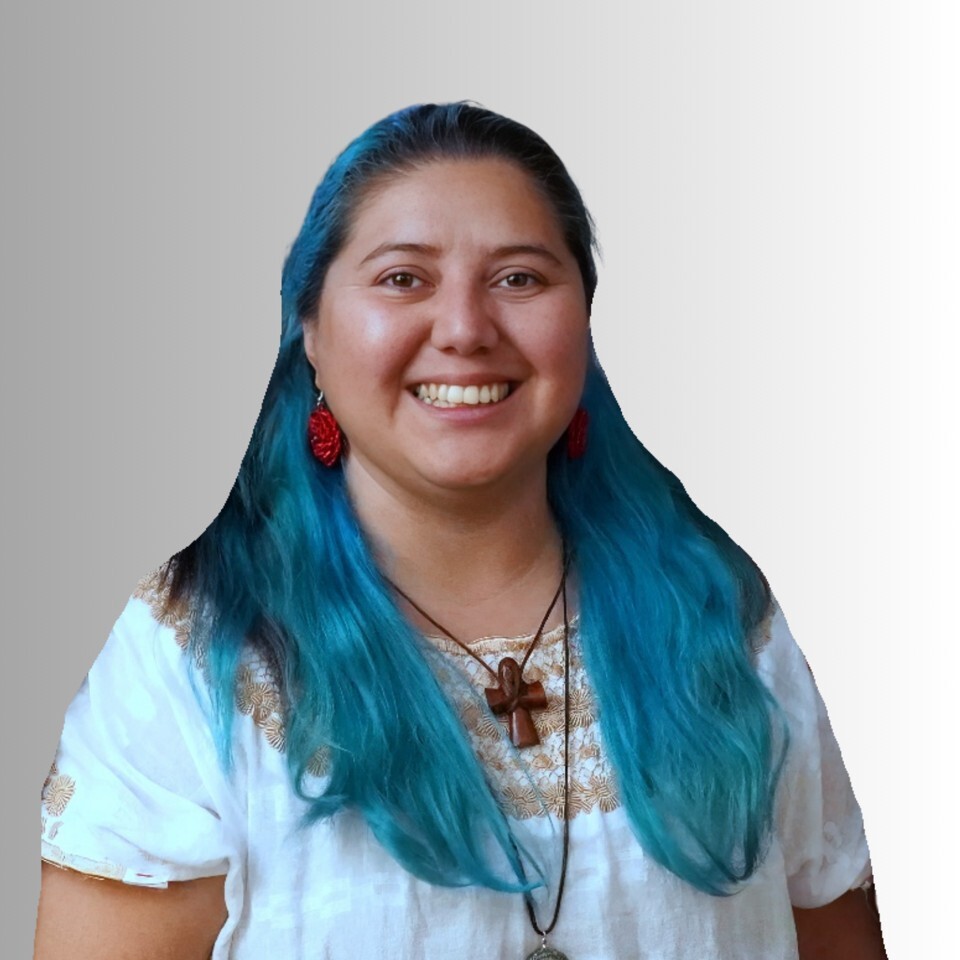
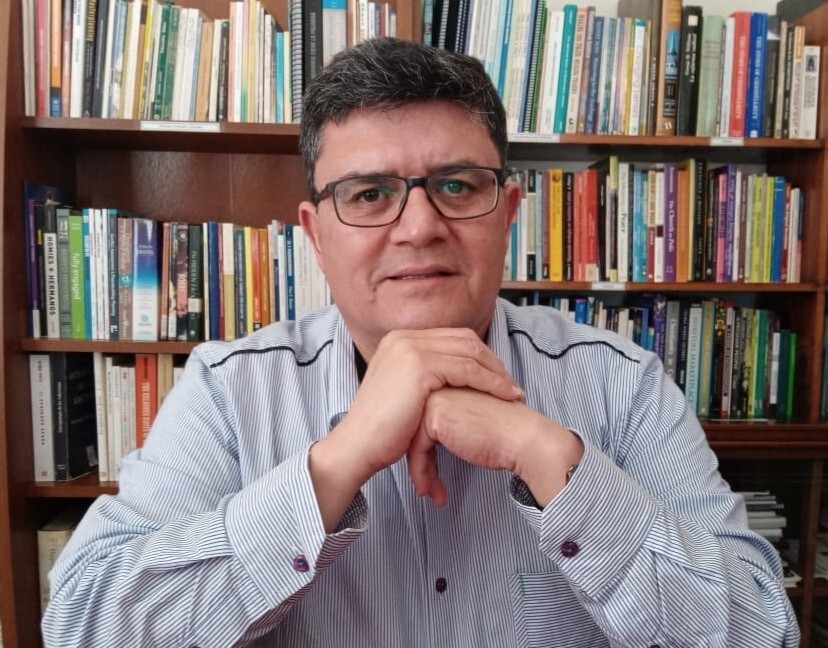 Karla Vásquez (Ambassador; pictured left) and Willi Hugo Perez (CEO/Rector; pictured right) of SEMILLA will travel from Guatemala City to Canada to re-connect with past guests and invite new visitors to a reciprocal learning experience in Latin America.
Karla Vásquez (Ambassador; pictured left) and Willi Hugo Perez (CEO/Rector; pictured right) of SEMILLA will travel from Guatemala City to Canada to re-connect with past guests and invite new visitors to a reciprocal learning experience in Latin America.
What makes the opportunity rare is in part due to the challenges of acquiring travel documents. Visitors from Guatemala must be able to assure Canadian officials that they will return to their home country within the specified time – and have the resources to do so.
 SEMILLA – the word is Spanish for “seed” – is an Anabaptist Seminary in Guatemala City that plants seeds of hope. It was founded by Latin American leaders in the early 1980s with a focus on peace and justice teaching during an extended civil war that saw large massacres of Indigenous people and destruction of their villages.
SEMILLA – the word is Spanish for “seed” – is an Anabaptist Seminary in Guatemala City that plants seeds of hope. It was founded by Latin American leaders in the early 1980s with a focus on peace and justice teaching during an extended civil war that saw large massacres of Indigenous people and destruction of their villages.
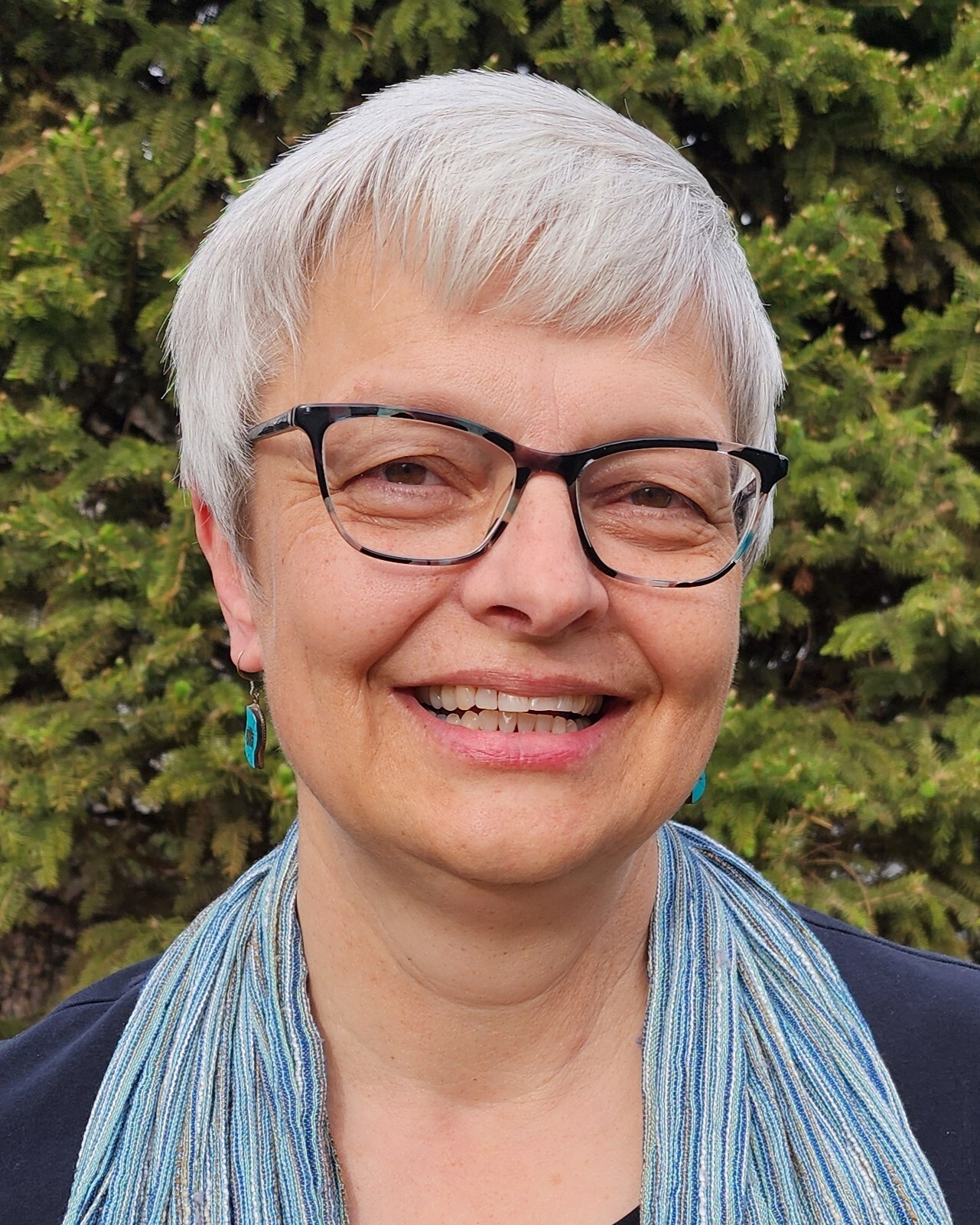 MC Canada’s decades-long relationship with SEMILLA was established by predecessors to International Witness and strengthened by student exchanges through Canadian Mennonite University (Winnipeg, Man.) and Rosthern Junior College (Rosthern, Sask.), said Jeanette Hanson, Director, International Witness (pictured right). Students from both schools have visited SEMILLA for extended cross-cultural learning and service experiences.
MC Canada’s decades-long relationship with SEMILLA was established by predecessors to International Witness and strengthened by student exchanges through Canadian Mennonite University (Winnipeg, Man.) and Rosthern Junior College (Rosthern, Sask.), said Jeanette Hanson, Director, International Witness (pictured right). Students from both schools have visited SEMILLA for extended cross-cultural learning and service experiences.
Vásquez has worked at SEMILLA in several capacities since 2014. Currently she oversees SEMILLA’s CASAS program (Central American Study and Service). The CASAS program offers participants an immersion experience to “… encounter Latin American culture and faith,” she said in an online interview. CASAS also designs one- and two-week Learning Tours for groups looking for a unique Guatemalan experience.
The goal for visitors, said Vásquez, is “… to create spaces for intercultural dialogue and mutual understanding,” and to “broaden their perspectives on faith, struggle, challenge, and hope.” It’s important for guests to “understand the importance of going out of their comfort zone, to challenge themselves, to learn more about the world around them, and build a stronger faith.”
Participants learn about the violent struggles endured by Indigenous Guatemalans that lingers on through generational trauma, but just as importantly, Vásquez said visitors learn about themselves.
Whether it’s getting used to the lively noise of a bustling city or not having an internet connection when they visit rural villages, “Their first experience is understanding themselves more than understanding our own culture, because when they are challenged, they get to know their own strengths, too,” said Vásquez.
SEMILLA is about more that engaging with North Americans, she added. They offer theological education on site — and thanks to the popular use of online meeting technology during the pandemic — they now serve many more Latin American students via hybrid correspondence/online studies in Colombia, Paraguay, Ecuador, more recently in Cuba, and soon in Bolivia.
Most Latin American pastors are bi-vocational, Vásquez said. It’s common for people to hold down two jobs to support their families, which doesn’t allow them to visit SEMILLA for on-site teaching. With the hybrid model, students receive study materials by mail and interact with their professors online. Last year, SEMILLA served 700 students, with an additional 150 participating in the CASAS program. Some graduates now serve in their home communities.
About 15 full-time staff and faculty together with additional part-time staff make it all possible. They contract additional faculty depending on the enrolment and the class calendar.
Vásquez wants more North American Mennonites to know that the Anabaptist seed that was planted and has grown into SEMILLA is about being a prophetic witness. In communities where SEMILLA has worked, large numbers of youth and children are attracted to a life of faith, not because of fear of an eternity in hell or judgemental preaching, but because the theology they bring offers hope, grace, solidarity, resilience, and joy.
During what is her first ever trip to Canada, Vásquez will invite Canadians to visit SEMILLA to see how faith is flourishing there. By connecting with Canadian Mennonites, she said she’s more interested in finding companions than in a benefactor-recipient relationship, and hopes to establish friendships with people “who can come here, share, exchange, and grow together and learn from one another.”
***
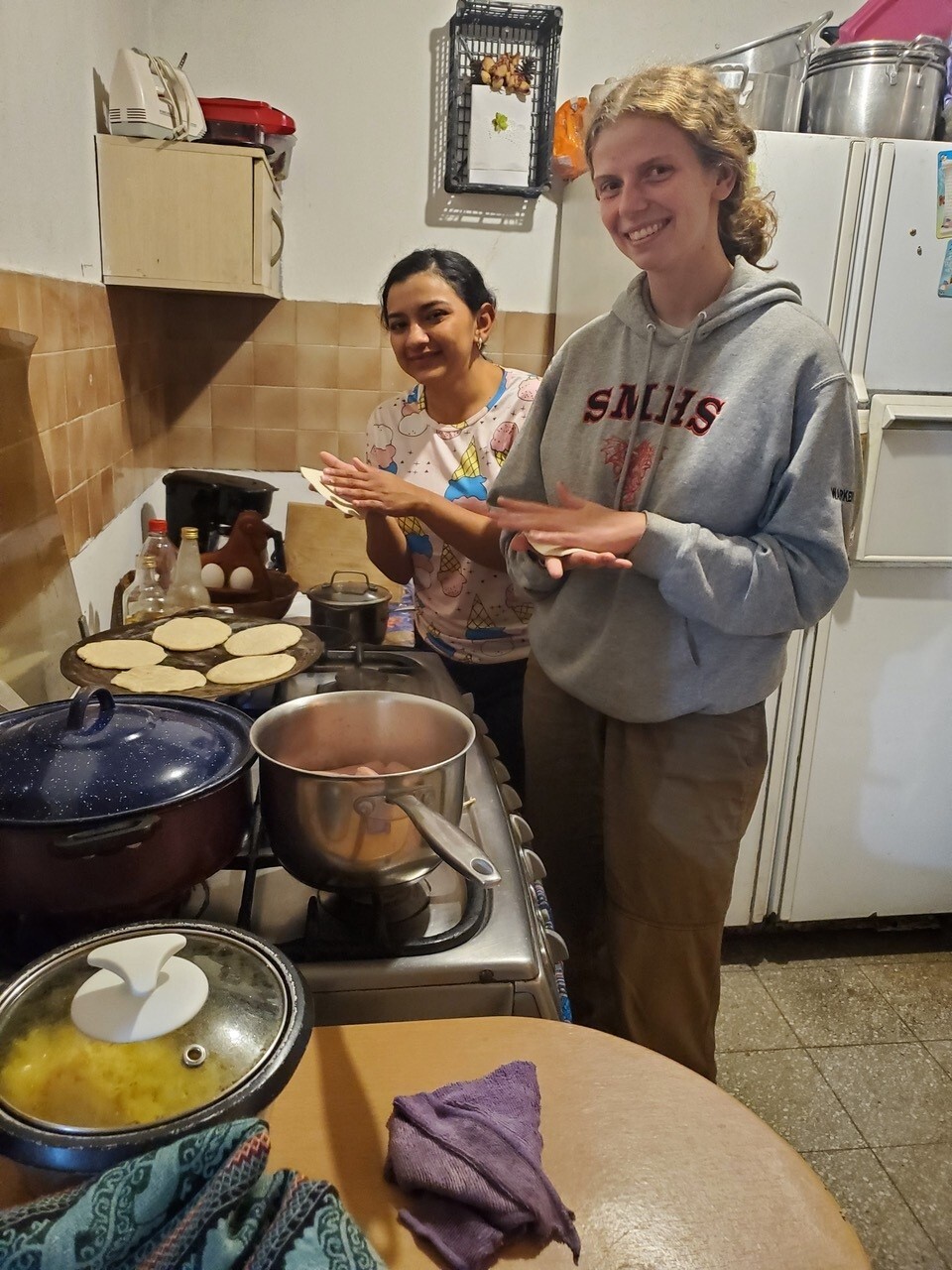 Danika Gingerich (pictured far right with her host sister, Mitzie Tucubal de Paz, learns to make tortillas in Guatemala City in 2023) took a one-semester gap from her fourth-year studies in Peace and Conflict Transformation at Canadian Mennonite University in 2023 to participate in CMU’s Estamos program, which provided an international experience for students looking to broaden their worldview.
Danika Gingerich (pictured far right with her host sister, Mitzie Tucubal de Paz, learns to make tortillas in Guatemala City in 2023) took a one-semester gap from her fourth-year studies in Peace and Conflict Transformation at Canadian Mennonite University in 2023 to participate in CMU’s Estamos program, which provided an international experience for students looking to broaden their worldview.
Part of Gingerich’s motivation was to continue a family tradition of experiencing the global church internationally: her parents and grandparents were international church workers.
“I always felt an international experience would be very fulfilling to me and help me grow in ways that I can’t even imagine,” she said.
Gingerich spent six years of her childhood in Burkina Faso. “In coming back to Canada, I realized how much growth happened there, and I wanted to experience that again on my own as an adult.”
While at SEMILLA in Guatemala City, a practicum opportunity arose in Honduras. SEMILLA facilitated a placement for her with a peace and justice organization.
“That was a great fit for me, because it was hands-on working in a little organization [in a setting] where there was a lot of violence against women… and [help] support their various projects, attend marches, and work with young girls who are learning what it means to stand up for themselves.”
Close knit communities and intergenerational families are a hallmark of Latin American society, said Gingerich.
Studying Spanish while taking classes in global issues and field trips made for memorable moments. She saw first-hand the contrast between the poorest market vendors right next to the richest homes.
An enduring highlight of her experience will always be the close relationship she developed with her host family, a couple with two adult children who worked but still lived at home. Her host father was unemployed due to a work injury, so the pair spent hours sharing stories with each other. “We really hit it off,” she said.
An enduring lesson for Gingerich was “Seeing how faith was so central in their family, and how much they valued each other, even though they didn’t have extra funds, and they had a lot of stresses in their lives, but they stuck together and were so supportive of each other.”
Gingerich still maintains contact with her Guatemalan host family. Having seen the high value Guatemalans place on family, she now makes a point of being in more regular contact with her grandparents. Her experience also challenged the complacency that she sees in Canadian society, where wealth and privilege seem to displace a rich faith life.
The Estamos program offered by CMU has since come to an end. Renee Willms, Director of the President's Office, said in an email that pilot funding from Global Skills Opportunity Grant through the federal government was not renewed, and the program was unable to continue.
"SEMILLA was a key partner who helped to support our programs in significant ways. It was always a joy to work with them!” she wrote in an email.
***
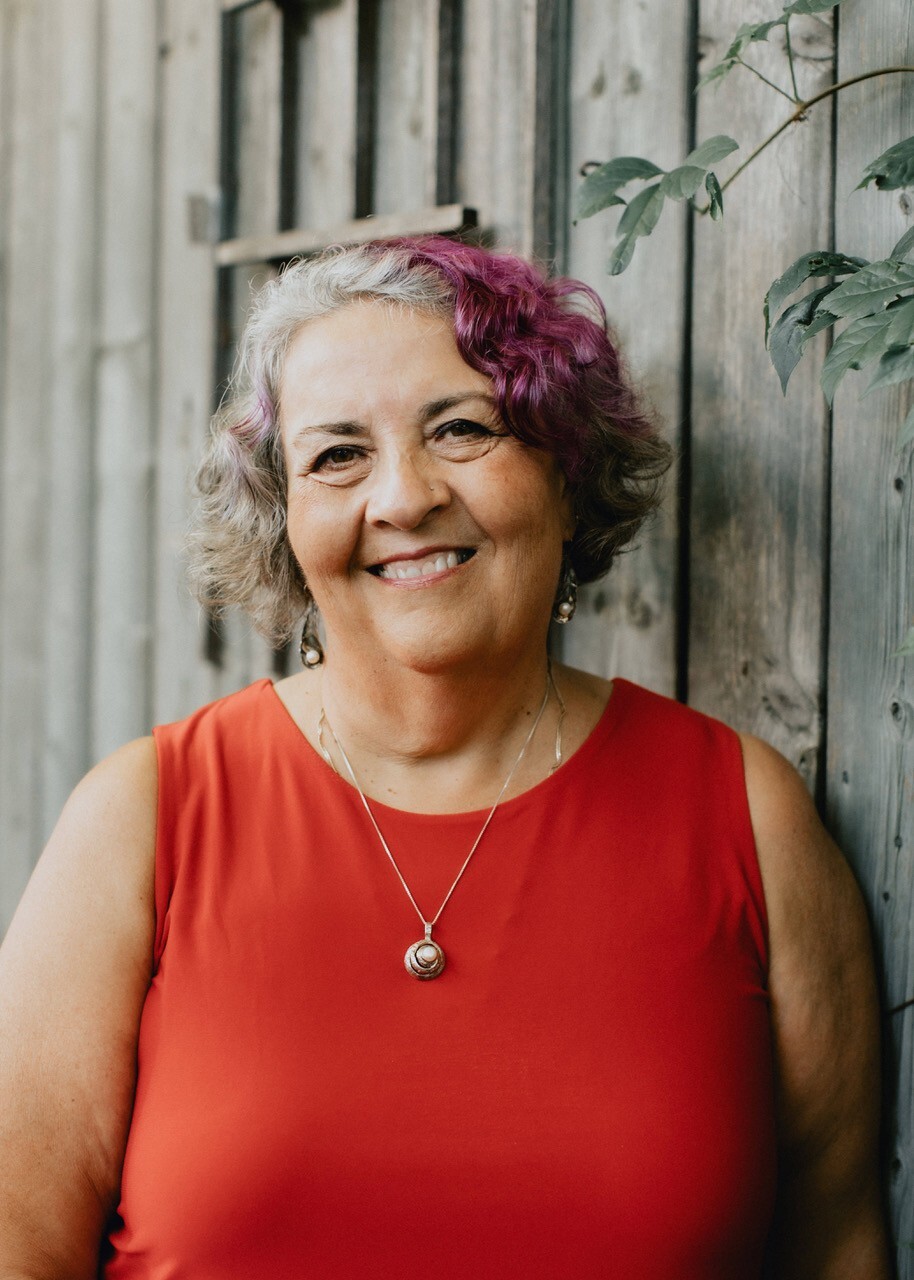 Geraldine Balzer (pictured left) has a long-standing relationship with SEMILLA. Balzer wears many hats: she is Associate Professor and Department Head, Curriculum Studies, at the University of Saskatchewan, Director of Education for Rosthern Junior College, and moderator of Mennonite Church Canada.
Geraldine Balzer (pictured left) has a long-standing relationship with SEMILLA. Balzer wears many hats: she is Associate Professor and Department Head, Curriculum Studies, at the University of Saskatchewan, Director of Education for Rosthern Junior College, and moderator of Mennonite Church Canada.
Her involvement with SEMILLA began in 2007 when she visited the Guatemala campus as a parent-chaperone with a class from RJC. The trip coincided with the start of her academic career and the beginnings of a research project about the impact of short-term experiential education on high school students. She has accompanied most RJC classes since then, and in 2010 added U of S student trips to SEMILLA in collaboration with Mennonite Central Committee.
Over the years, Balzer has witnessed a shift from hands-on service projects imposed on recipients by North American visitors (‘we want to come and paint a school for you’), to more reciprocal relationships, where the host community determines what a visitor experience looks like.
For RJC students, it means they reconnect in the same place and community each year to build a more equitable relationship over time, while freeing the host to shape the student/guest experience. Instead of painting a school, an extended and immersive stay with host families now looks like students learning how to cook local foods, studying Spanish, hearing stories about local history, and experiencing Latin America culture and local expressions of faith.
Putting on her hat as moderator of Mennonite Church Canada, Balzer says her academic learning reflects the direction MC Canada has taken with its International Witness workers.
“It’s much more local, and much less flown-in. It’s part of moving away from deficit thinking and to looking at people [in other countries] with agency and abilities to shape their own destinies.
“That’s one of the reasons it’s so great that [Willi] and Karla are coming here to meet with people and articulate some of the good work that SEMILLA is doing, and how as a global church we still have a responsibility to care for each other, and that that caring looks different depending on the resources you have access to,” said Balzer.
She added that “There’s much to learn about passion and caring and living out their belief system.” To that end, she encourages folks in MC Canada to notch up their sun and beach winter vacations, book a Learning Tour with SEMILLA, and experience a stay in Guatemala.
“Be open to a little bit of discomfort in order to learn and experience the world.”
Willi Hugo Perez and Karla Vásquez will visit locations in Ontario, Manitoba, Saskatchewan, and Alberta from September 12-22. For more details, and to arrange a meeting, contact Jeanette Hanson - 306-212-8999 or jhanson@mennonitechurch.ca.
-30-